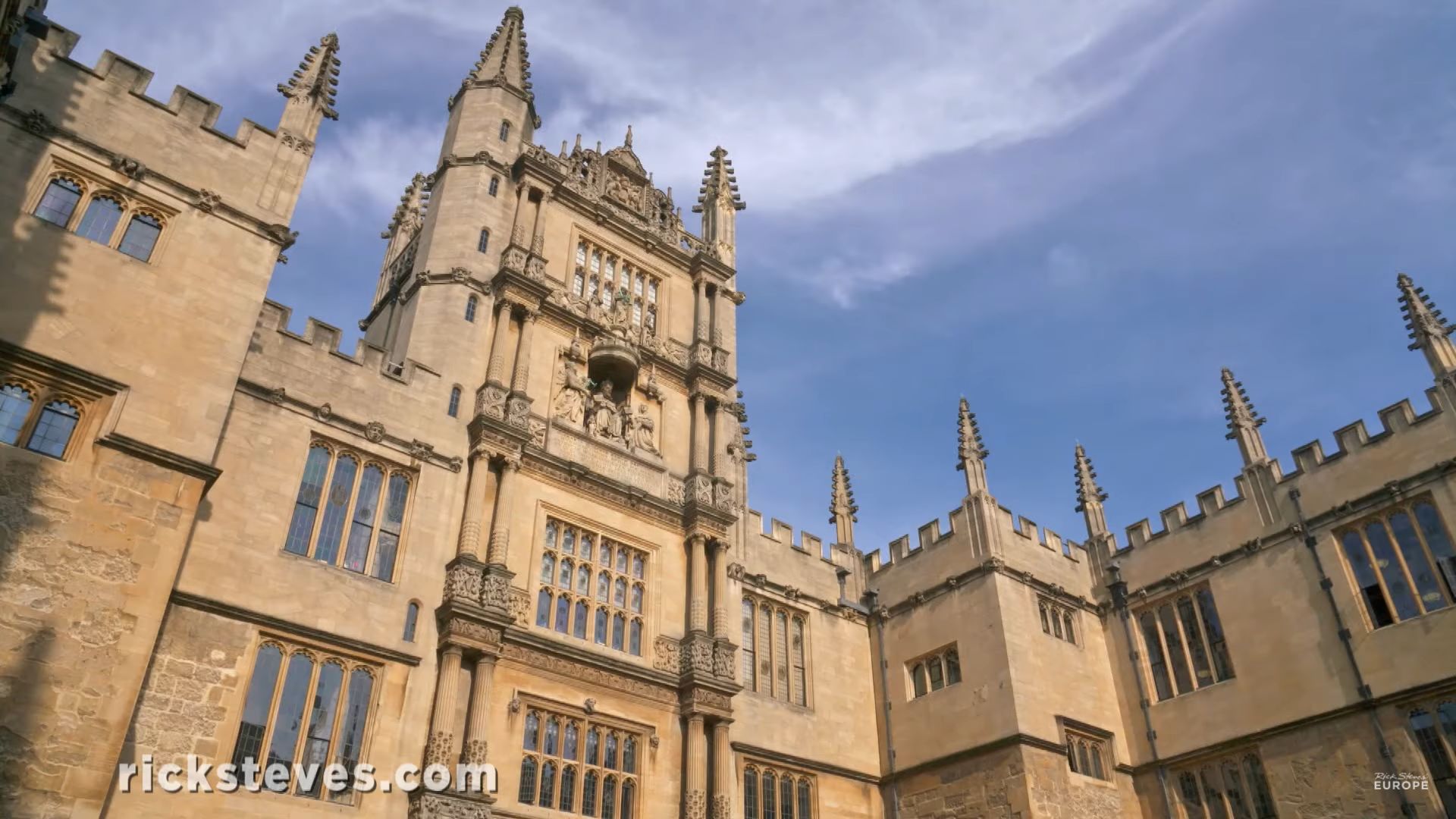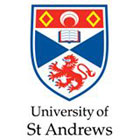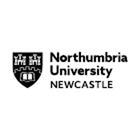Why the UK is a top choice for Canadian students
Are you considering studying in the UK? It’s a question many Canadians ask themselves, with over 7,000 ultimately saying ‘yes!’ every year. So why do so many Canadians decide to study in England, Scotland, Wales, or Northern Ireland? The reasons are numerous, but atop the list are benefits such as access to competitive programs such as medicine, dentistry and law, the prestige of studying at one of the world’s oldest universities, the quality of education at these renowned institutions, and unique growth opportunities for Canadian and international students alike. Other benefits often cited are shorter degree programs, work opportunities abroad, and the adventure that comes along with being just a short flight from Europe!
By studying in the United Kingdom, you have a chance to choose from over fifty-seven thousand courses available across the UK’s 160+ universities and more than 280 other institutions of higher learning.





What are the Key benefits of studying in the UK vs other countries?
Access to in-demand programs – Many Canadians are motivated to study in the UK because of their ability to access programs that are in short supply in Canada, such as medicine, dentistry, and law, and then return home to practice. Other popular fields of study include business, especially MBAs, STEM, and the humanities.
Shorter course duration - UK universities offer shorter and more intensive courses to study, which can contribute to lowering the costs of studying. For example, Canadian and international students can complete their undergraduate programs within 3 years and postgraduate programs within 1 year. It is considered one of the unique advantages of the UK education system.
Scholarships and financial support - International students in the UK can access a range of scholarships and funding to help cover tuition and living costs.
Globally recognized universities - The UK is home to some of the world’s most storied and prestigious universities, including Oxford, Cambridge, and Imperial College London. These schools are renowned for their academic excellence, unique programs, and for sharpening some of the brightest minds the world has to offer. A UK qualification is highly valued by employers worldwide, including in Canada, supporting the long-term career aspirations of graduates.
Quality education - The UK is known for providing high-quality education that sets international standards. Its system combines long-standing traditions with ongoing improvements, ensuring students receive both strong academic foundations and practical skills. Regular reviews by independent agencies such as the Quality Assurance Agency (QAA) help maintain excellence across programs, and the focus on critical thinking and research helps graduates prepare for their eventual careers.
Graduate visa after studying - The UK Graduate visa lets you stay in the UK after your studies to pursue a career overseas. It is valid for two years if you have completed a UK bachelor’s degree, a postgraduate degree, or another eligible course, and for three years if you have completed a PhD.
Career opportunities - UK degrees are respected worldwide and help Canadian graduates access jobs across diverse industries. Universities also provide career support and practical learning opportunities that prepare students for global professional success.
Gateway to Europe - The UK's location offers Canadian and international students affordable access to Europe for weekend trips and cultural exploration, expanding your global perspective alongside your studies.
Unique culture and experience - The UK's multicultural environment offers Canadian students a familiar yet enriching experience. While Canadians typically adapt easily due to Canada's own diversity, studying in the UK provides fresh perspectives, global connections, and enhanced cultural awareness.
Intakes in the UK
Colleges and universities in the UK offer two major intakes, but a few of the universities also offer summer intakes.
Intakes | Duration | Details |
|---|---|---|
Autumn/Fall intake | September to December | Major intake at most universities; many courses begin during this period. |
Spring intake | January to April | Secondary intake for fewer courses at some universities. |
Summer intake (Limited) | April to June | Available at some universities for selected programs only. |
Top courses to study in the UK for Canadian Students
Top courses to study in the UK for Canadian Students
Dentistry
Dental programs in the UK are overseen by the General Dental Council (GDC), which sets standards and quality-assures all UK dentistry education.
Canadian students who graduate from a UK program must complete the National Dental Examining Board of Canada (NDEB) certification process. This typically involves either a Canadian degree completion program or the NDEB Equivalency Process before becoming licensed in Canada.
Medicine
UK medical schools are regulated by the General Medical Council (GMC), which ensures consistent national standards for training and education.
For Canadians, studying medicine in the UK can provide additional opportunities where places in Canada are highly competitive. Graduates returning home are considered International Medical Graduates (IMGs) and must follow the Medical Council of Canada (MCC) licensing pathway to practice. This includes credential verification and exams before applying for provincial or territorial licensure.
Law
UK law degrees are internationally recognized, and they follow common law practice. In England and Wales, the graduates are eligible to progress to the Solicitors Qualifying Examination (SQE).
For Canadian students returning home, the National Committee on Accreditation (NCA)
reviews and assesses international law degrees and may require additional courses or exams before you can begin the licensing process in Canada.
Top universities to study in the UK
When deciding which university to study at in the UK, it's crucial that you also look at the world university rankings. This helps you compare and understand where a university ranks and how your desired institution fares on the global map. Here are the top UK universities according to QS World University Rankings 2025.
S.No. | Institution | QS Ranking 2025 (Globally) |
|---|---|---|
1 | 2 | |
2 | 4 | |
3 | 6 | |
4 | 9 | |
5 | 31 | |
6 | 34 | |
7 | 35 | |
8 | 51 | |
9 | 56 | |
10 | 74 |
Life as a Student in the UK
Life on a UK campus goes far beyond academics. Universities provide a welcoming environment where Canadian and international students can join clubs, societies, and cultural activities that create a strong sense of community. These opportunities allow you to meet people from around the world, gain new perspectives, and build lasting friendships. UK student life often emphasizes independent study, but campuses also encourage you to take part in events, workshops, and activities throughout the year to balance your academic journey with personal growth.
Everyday campus experience and activities
As a Canadian student in the UK, you’ll find plenty of ways to get involved beyond the classroom. Some common experiences include:
Student clubs and societies - Most universities have hundreds of groups for students, from sports and music to academic, cultural, and special-interest clubs.
Sports and fitness - Universities typically provide facilities for everything from football and rowing to niche activities.
Social life - Student unions often arrange events, and local pubs are well known for gathering people for quizzes, karaoke, and casual nights out.
Travel opportunities - Students frequently take weekend trips within the UK or to nearby European places.
Housing and accommodation choices for students
There are several types of accommodation options available to international and Canadian students choosing to study in the UK:
Short-term accommodation: Hotels, hostels, and other temporary options when you first arrive.
Renting: Lease an apartment or house on your own or with other students.
Managed accommodation: Purpose-built housing designed specifically for students, often with study and social facilities.
University-managed accommodation: Residence and other housing located on or near campus.
Residential colleges: Available at some universities, combining housing with academic and social support.
Homestays: Living with a local family in their home.
If you want to find accommodation options across the UK or need more information, visit IDP’s student accommodation page.
Embracing cultural diversity and student communities
The UK has a long history of cultural diversity, reflected in both its wider society and its universities. Canadian and international students are welcomed into inclusive communities that value different perspectives and traditions. Student unions and international societies celebrate this diversity by hosting events, festivals, and activities throughout the year, creating opportunities to connect, share experiences, and feel part of a global campus community.
Health services and safety support for internationals
International students in the UK who are studying full-time and for more than six months must pay the Immigration Health Surcharge (IHS) as part of their visa application. Once they have paid, they are eligible to use the NHS (National Health Service), which covers most hospital and GP services.
It’s recommended that arriving students register with a local GP (General Practitioner) soon after they land in the UK, so they can access non-emergency medical care when needed.
If your course is shorter than six months, you will not be eligible for all NHS services, and you may need to arrange private health insurance.
For more information, visit the NHS website.
Cost to study in the UK
Tuition costs vary widely depending on the degree you’re pursuing and the school you opt for. The table below will give you a general sense of the costs; however, it’s best to consult with an IDP counsellor to understand the exact costs for the degree you want to pursue.
S.No. | UK Study Programs | Average fee (in GBP*) |
|---|---|---|
1 | Medicine and Medical Studies | From GBP 8,800 to GBP 71,659 per year |
2 | Dentistry and Dental Studies | From GBP 5,580 to GBP 82,814 per year |
3 | Law and Legal Studies | From GBP 3,975 to GBP 42,150 per year |
*Please note that all figures are indicative and PhD costs might differ, as fully funded options are also available in the UK
If you want to bring down your educational expenses, it is best to apply for various scholarships available for International and Canadian students.
Cost of living in the UK
Moving to the UK as a Canadian student requires financial planning. This comparison highlights the key cost differences between the UK and Canada, helping you prepare an effective budget for your studies abroad.
Accommodation Costs
Housing is one of the largest monthly expenses. While rent is typically similar, city centre apartments in the UK tend to be slightly higher.
Accommodation Type | Canada | United Kingdom | Difference |
|---|---|---|---|
1-bedroom apartment (city centre) | $1,847 CAD (£987) | $1,903 CAD (£1,017) | +3.0% |
1-bedroom apartment (outside centre) | $1,606 CAD (£858) | $1,563 CAD (£836) | -2.7% |
3-bedroom apartment (city centre) | $2,915 CAD (£1,558) | $3,201 CAD (£1,711) | +8.9% |
3-bedroom apartment (outside centre) | $2,549 CAD (£1,363) | $2,528 CAD (£1,352) | -0.8% |
Money-saving tip: Sharing a 3-bedroom apartment outside the city centre can reduce your rent to around £450-£500 per month.
Transportation
Public transport in the UK is usually more expensive than in Canada.
Transport | Canada | United Kingdom | Difference |
|---|---|---|---|
One-way bus/train ticket | $3.50 CAD (£1.87) | $4.68 CAD (£2.50) | +25.2% |
Monthly transport pass | $104.90 CAD (£56) | $130.90 CAD (£70) | +19.9% |
Taxi starting fare | $4.70 CAD (£2.51) | $7.48 CAD (£4.00) | +37.2% |
Gasoline (per litre) | $1.56 CAD (£0.83) | $2.69 CAD (£1.44) | +42.0% |
Student tip: Most UK universities offer discounted student travel cards, reducing monthly transport expenses to around £50-60.
Utilities
Utility bills are higher in the UK, but mobile plans are cheaper.
Utility | Canada | United Kingdom | Difference |
|---|---|---|---|
Electricity, heating, water (85m²) | $208 CAD (£111) | $446 CAD (£239) | +53.3% |
Mobile plan (10GB + calls) | $62 CAD (£33) | $25 CAD (£13) | -144.9% |
Internet (60 Mbps, unlimited) | $86 CAD (£46) | $59 CAD (£31) | -46.4% |
Grocery Shopping
Dairy, meat, and produce are typically more expensive in Canada, while bakery and rice cost more in the UK.
More expensive in Canada:
Milk (1L): $3.06 vs $2.33 (+31.5%)
Rice (1kg): $5.05 vs $3.06 (+64.9%)
Bread (500g): $3.66 vs $2.31 (+58.4%)
Cheaper in Canada:
Eggs (12-pack): $4.84 vs $5.52 (-12.3%)
Bananas (1kg): $2.01 vs $2.28 (-11.8%)
Entertainment & Leisure
Social activities tend to be slightly more expensive in the UK, especially for gyms and cinema tickets.
Activity | Canada | United Kingdom | Difference |
|---|---|---|---|
Gym membership (monthly) | $58.60 CAD (£31) | $64.66 CAD (£35) | +9.4% |
Tennis court rental (1 hr, weekend) | $23.90 CAD (£12.81) | $21.93 CAD (£11.72) | -9.3% |
Cinema ticket | $15.50 CAD (£8.29) | $18.71 CAD (£10.00) | +17.1% |
Dining Out
Eating out is more expensive in the UK.
Dining Option | Canada | United Kingdom | Difference |
|---|---|---|---|
Meal at an inexpensive restaurant | $25 CAD (£13.36) | $28.06 CAD (£15.00) | +10.9% |
Dinner for 2 (3 courses) | $100 CAD (£53) | $121.60 CAD (£65) | +17.8% |
McDonald’s combo | $15 CAD (£8.02) | $14.59 CAD (£7.80) | -2.8% |
Local beer (0.5L) | $8 CAD (£4.28) | $9.35 CAD (£5.00) | +14.5% |
Cappuccino | $5.20 CAD (£2.79) | $6.47 CAD (£3.46) | +19.4% |
Monthly Budget Estimate for Students
Based on these costs, here’s an approximate monthly budget for Canadian students in the UK:
Accommodation (shared): £450–700
Food & groceries: £150–250
Transport: £50–70 (with student discount)
Utilities: £100–150
Entertainment & leisure: £100–150
Mobile phone: £15–30
Total estimated monthly budget: £865–1,350 ($1,600–2,500 CAD)
Source: Numbeo - Cost of Living Comparison: UK vs Canada
Living expenses across major UK cities
The cost of living in the UK varies depending on the city you choose, with London being the most expensive option. When budgeting, it’s important to consider accommodation, transport, food, and lifestyle. The UK Home Office requires students to show proof of funds to cover living expenses, which gives a baseline for expected costs. IDP’s Cost of Living Calculator can also help you estimate based on your city and lifestyle.
Example living costs by city:
City | Average Living Cost (approx. per month)* | Key Considerations |
|---|---|---|
London | £1,500+ | The most expensive city in the UK, with high accommodation and transport costs. Students often pay much more than the visa minimum, especially for housing. |
Manchester | £1,200+ | A major student hub with vibrant nightlife and cultural opportunities. Costs are lower than in London, but accommodation prices are rising in popular areas. |
Bristol | £1,200+ | Known for its creative industries and student culture. Housing can be higher than the UK average, especially near campus areas. |
Edinburgh | £1,200+ | Scotland’s capital offers a historic setting with good student housing options, though prices are higher during festival seasons. |
Glasgow | £1,000–£1,100+ | One of the more affordable large UK cities, with strong student communities and lower housing costs compared to southern England. |
Cardiff | £900–£1,100+ | The capital of Wales is typically less expensive than most English cities, making it attractive for students looking to keep costs down. |
*Please note that all figures are indicative, and actual expenses depend on lifestyle and accommodation choice. It’s always best to check your chosen university’s estimated living costs guidance for more accurate planning.
Scholarships for Canadian and international Students Studying in the UK
For study in the UK, the amount of money available and the type of award can vary between institutions. Some research programs may provide up to 100% of the tuition fee, besides covering a part of your living expenses.
Here are some popular scholarship programs available to Canadians studying in the UK:
S.no. | Name of the UK scholarship | Description |
|---|---|---|
1 | Supports talented professionals who have shown prior leadership skills and exceptional performance in their respective fields. With Chevening, you can apply for a scholarship or fellowship, the selection of which is done by the High Commission and British embassies. | |
2 | The Commonwealth scholarship aims to give international students from Commonwealth countries a chance to pursue postgraduate degrees in the UK. | |
3 | Scotland Saltire Scholarships | Scotland’s Saltire Scholarships is a scholarship program of the Scottish Government in collaboration with Scottish universities, offered in the areas of creative industries, technology, science, medical sciences, healthcare, and renewable and clean energy. |
4 | Provides £5,000 awards each year to Canadian postgraduate students already enrolled full-time at a UK institution. Applicants must have completed at least one year of study, demonstrate academic excellence, and hold a valid Canadian passport. |
*This is an indicative list; speak with your IDP counsellor for details and the best available options suited to your profile.
University-specific scholarships for International and Canadian Students
UK universities offer various scholarships to support international students, including Canadians. These can reduce tuition costs, provide living expenses, or target specific subject areas. Since each university has different requirements, check official university websites or use IDP's Find a Scholarship tool. An IDP counsellor can also help guide you through the process.
Example Scholarships:
UCL Global Masters Scholarship - Up to £15,000 for international master's students with financial need
Cardiff University - Vice-Chancellor's International Scholarship - Offers awards ranging from £3,500 to £10,000 to eligible postgraduate taught students, provided as a discount on tuition fees.
University College London - GREAT Scholarship for Justice and Law - £10,000 for international students in law-related programs
Royal College of Art - Roger Walls Binns Bursary (Fashion) - Up to £20,000 for international students in fashion studies
Glasgow School of Art - Governor's International 24-month Postgraduate Scholarships - £3,000 for international postgraduate students in architecture studies, provided as a discount on tuition fees.
UK Student Visa for Canadians
If you’re a Canadian student planning to study in the UK, you’ll need to apply for a Student visa. This visa allows you to stay in the UK for the full duration of your course if you meet the eligibility requirements. You can usually apply online from Canada up to six months before your program begins.
Visa requirements (CAS letter, proof of funds)
Here’s an overview of the types of study visas and their application requirements:
Type of student visa | Who it’s for | When to apply | Arrival in the UK |
|---|---|---|---|
Tier 4 (General) | Students aged 16 or over who have been offered a place in a course at a UK educational institution with a valid Tier 4 sponsor | Three months before the start of your course | Up to one week before if your course lasts six months or fewer. |
Short-term study visa | Students who have been offered a place in a short-term course in the UK, such as an English language course or training course | Three months before your date of travel to the UK | Depends on your nominated travel dates |
To apply for a UK Student visa, you'll need:
Confirmation of Acceptance for Studies (CAS) from a licensed UK institution
Valid passport or travel document
Proof of funds to cover tuition and living costs throughout your studies
Passport-sized photograph (if requested)
English language evidence (if required by your institution)
Academic Technology Approval Scheme (ATAS) certificate for certain technical or research programs
Parental consent if you're under 18
Translations for any non-English documents (usually not needed for students outside Quebec)
Financial sponsor consent if sponsored within the last 12 months
Canadian students generally do not need a tuberculosis (TB) test, as Canada is not on the list of countries where it’s required.
You can also check our UK visa guide for more details.
*For more detailed information, please visit the Gov.UK.
Is it challenging to obtain a student visa as a Canadian student?
For Canadian students, getting a UK Student visa is typically a very straightforward and easy affair. You'll need your CAS, proof of funds, and supporting documents. Most Canadian applications are processed within three weeks.
Processing time & steps
When applying from Canada, you can submit your UK Student visa application up to six months before your course starts. Most applications take about three weeks to process, though busy periods may cause delays - so apply early.
Application Steps:
Apply online through the official UK Government Student visa page
Pay the visa fee (£524) and healthcare surcharge; the exact amount depends on your visa length.
Book an appointment at a UK visa application centre in Canada for biometric information.
Submit your supporting documents, including CAS, passport, and proof of funds.
Wait for the decision; you'll typically get an email response within three weeks of your appointment.
How can IDP help Canadian and international students study in the UK?
IDP has decades of global experience helping students achieve their study abroad goals, and now Canadian students can access the same expert support for studying in the UK. Whether you connect with an IDP counsellor in Toronto, Vancouver, or online, you’ll get personalized guidance designed to make your UK study journey smoother and more successful.
Our counsellors work one-on-one with you to match your career goals with the right program and university. As part of our free consultation services, we support you at every stage, including:
Service | IDP Canada | Others |
|---|---|---|
Free counselling | 100% free guidance for students | Many charge fees |
University applications | Direct support with applications to British universities and colleges | Limited access or self-apply only |
Local Canadian offices | Step-by-step support with a British student visa | Not locally available |
IELTS prep & testing | IDP is a co-owner of IELTS and runs official test centres in Canada | Third-party only |
Scholarship & financial aid advice | Guidance on British university scholarships & budgeting | Limited resources |
Pre-departure sessions | Advice on accommodation, cost of living & life in the UK | Rarely offered |
Unbiased advice | IDP works with the majority of British universities and prioritizes your goals and preferences | Many only promote partner institutions |
Because of IDP’s global partnerships with leading universities, we can open doors to some of the most in-demand programs in the UK.
Book a free consultation today to explore your UK study options.
Can Canadian citizens study in the UK?
Yes, Canadian citizens can apply to UK universities, and once accepted, they can apply for the required Student visa for full-time study.
How long does it take for a Canadian to get a UK student visa?
If applying from outside the UK, the process for a student visa usually takes 3 weeks. If applying from within the UK, decisions can take around 8 weeks. Canadians should apply up to six months before their program starts.
Do Canadians need a visa to study in the UK?
Yes. All Canadian students require a UK Student visa for full-time study. You’ll need a Confirmation of Acceptance for Studies (CAS), proof of funds, and supporting documents to apply.







